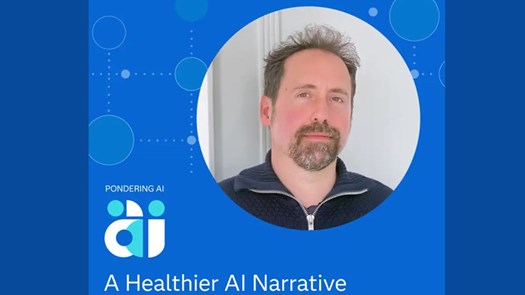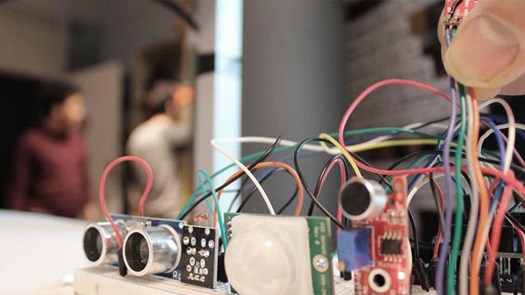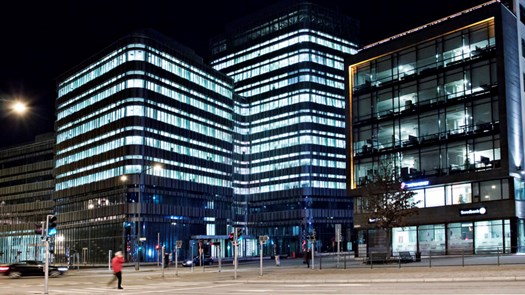We use cookies on this website. Cookies help us deliver the best experience on our website. Read about cookies.
-
- Education
- Education
- Programmes and courses
- Applications and admissions
- Tuition fees
- Scholarships
- Exchange studies at Malmö University
- Study Guidance
-
- After admission
- After admission
- Moving to Malmö
- Pre-orientation
- Arrival guide
-
- About studies at Malmö University
- About studies at Malmö University
- Why choose Malmö University
- Understanding university studies
- Connect with our students
On the page -
- Research
- Research
-
- Doctoral studies
- Doctoral studies
- Doctoral courses
-
- Doctoral schools
- Doctoral schools
- Doctoral school: Education, Learning and Globalisation
- Doctoral school: The National Research School for Professionals in Social Services
- Doctoral school: Learning in Multicultural Societal Contexts
- Doctoral school: ComBine
- Doctoral school: Swedish National Graduate School in Science and Technology Education Research
- Doctoral school: Relevancing Mathematics and Science Education (RelMaS)
- Doctoral school: Sustainable Movement Education
- Doctoral school: Finding ways in a time of great future challenges (FinnFram)
- Doctoral school: Pedagogy and Vocational Skills
- Doctoral school: Culturally Empowering Education through Language and Literature
- Research subjects
-
- Research centres
- Research centres
- Biofilms Research Centre for Biointerfaces
- Citizen Health
- Imagining and Co-Creating Futures
- Institute for Urban Research
- Malmö Institute for Migration Studies
- Literacy and Inclusive Teaching
- Centre for Work Life Studies
- Sustainable Digitalisation Research Centre
- Centre for Sexology and Sexuality Studies
-
- Research publications
- Research publications
- Search publications
- Malmö University Press
-
- Research in focus
- Research in focus
- Focus: in the classroom
- Focus: the mouth
- Focus: climate and society
- Focus: the war in Ukraine
- Focus: perspectives on Malmö
- Focus: a future with AI
- Research in focus: Migration
- Research events
- Participate in a research study
- Coffee Break Quiz
On the page -
- Collaboration and Innovation
- Collaboration and Innovation
- Innovation
- Collaboration with students
-
- Collaborate with researchers
- Collaborate with researchers
- Labs and facilities
- Culture collaboration
- Support Malmö University
- Alumni & Friends
On the page -
- About us
- About us
-
- Faculties and departments
- Faculties and departments
-
- Faculty of Culture and Society
- Faculty of Culture and Society
- Department of Urban Studies
- Department of Global Political Studies
- School of Arts and Communication
-
- Faculty of Education and Society
- Faculty of Education and Society
- Department of Childhood, Education and Society
- Department of Sports Sciences
- Department of Natural Science, Mathematics and Society
- Department of School Development and Leadership
- Department of Culture, Languages and Media
- Department of Society, Culture and Identity
-
- Faculty of Technology and Society
- Faculty of Technology and Society
- Department of Computer Science and Media Technology
- Department of Materials Science and Applied Mathematics
-
- Faculty of Odontology
- Faculty of Odontology
- Master's programmes in Dental Science
- University Dental Clinic
- Management and decision-making paths
-
- Vision, objectives and strategy 2025
- Vision, objectives and strategy 2025
- Global engagement
- Sustainability
- Widened recruitment and participation
- Quality assurance work at the University
-
- Malmö Academic Choir and Orchestra
- Malmö Academic Choir and Orchestra
- Student work – video pieces
-
- Annual Academic Celebration
- Annual Academic Celebration
- Academic traditions
- Meet our new professors
- The University in a troubled world
On the page
Research in focus: a future with AI
a future with AI
Artificial intelligence, AI, can be used in game design, healthcare, energy production, public transport and more. The development of the technology presents great opportunities but also challenges and risks. Academics at Malmö University are researching how AI can be integrated and improve the use of different systems, but also what democratic, ethical and societal consequences the rapidly changing technology may have.
Research themes
Malmö University's AI research may include, for example:
- developing AI for sustainable solutions in energy consumption and environmental impact
- exploring the potential of AI to increase productivity in industry and business
- application of AI in medical research to improve diagnosis, treatment and medical technologies
- AI-based tools and platforms for education and learning
- studying ethical and societal implications of AI in areas such as justice, healthcare, security, privacy, liability, and regulation
- automation in public organisations using AI.
News
-
 News | Published: 13 February 2025
News | Published: 13 February 2025
Modelling to decrease death toll from lack of organ donors
In the EU, around fifteen people die every day due to the lack o...
-
 News | Published: 21 January 2025
News | Published: 21 January 2025
Guiding software companies into the future
Through her doctoral thesis, computer scientist Meenu Mary John...
-
 News | Published: 23 October 2024
News | Published: 23 October 2024
AI: do healthcare professionals have trust issues?
As AI slowly creeps into our healthcare systems, are there...
-
 News | Published: 1 October 2024
News | Published: 1 October 2024
Increasing the understanding of human learning
How can the learning process can be improved through data-driven...
-
 News | Published: 31 January 2024
News | Published: 31 January 2024
AI can solve problems in schools but is also a potential threat
AI is on the rise both as a tool and as a commodity in schools,...
-
 News | Published: 11 October 2023
News | Published: 11 October 2023
Global governance shift in perception of AI, but more debate is crucial
For three global organisations, the discourse around AI has...
-
 News | Published: 26 April 2023
News | Published: 26 April 2023
Is artificial intelligence the future of healthcare in the Nordics?
The Nordic countries' national strategies point to the growing...
-
 News | Published: 24 March 2023
News | Published: 24 March 2023
When can we trust an AI system?
What challenges and opportunities can arise when humans use an...
-
 News | Published: 1 February 2023
News | Published: 1 February 2023
Could an AI robot be able to perceive a fourth dimension?
What happens when the brain tries to create an image of the...
-
 News | Published: 26 September 2022
News | Published: 26 September 2022
Exploring how AI can collaborate with human game designers
Game designing is a collaborative and multi-faceted task. It is...
-
 News | Published: 7 September 2022
News | Published: 7 September 2022
Artificial Intelligence doesn’t have to lead us to a dystopic future
Artificial intelligence could help us solve both environmental...
Research projects
-
 Research project
Research projectData Conversations
pille.pruulmann.vengerfeldt@mau.se -
 Research project
Research projectMultistakeholder perspectives and experience of trust in digital health and AI
michael.strange@mau.se -
 Research project
Research projectDigital Work Futures: Adopting and adapting to AI-infused platforms in the digital and creative industries
martin.berg@mau.se -
 Research project
Research projectFuture Society and Democracy in Europe
michael.strange@mau.se -
 Research project
Research projectMen, sexuality and digital intimacies
torbjorn.skoglund-nyberg@mau.se -
 Research project
Research projectIntelligent and Trustworthy IoT Systems
paul.davidsson@mau.se -
 Research project | DOCTORAL PROJECT
Research project | DOCTORAL PROJECTAutonomous transport and connected vehicles
reza.malekian@mau.se
Films and podcasts
Pondering AI: A Healthier AI Narrative

Pondering AI: A Healthier AI Narrative
What happens when AI meets global health? Michael Strange from Malmö University joins Kimberly Nevala to look beyond the hype and discuss how context, humility, and collaboration can shape a more inclusive healthcare system.
AI and Healthcare: Challenges and Ethical Considerations
AI and Healthcare: Challenges and Ethical Considerations
Michael Strange joins the podcast AI & Real Life: Not Your Usual Take to discuss how data “lock-ins” can reinforce bias and discrimination in healthcare, the challenges facing medical professionals using AI tools, and the complex issue of liability. This bi-weekly series features conversations between two attorneys and global experts on the real-life implications of AI in society.
https://www.youtube.com/embed/xSAMufyLPu8?si=XXvTRPNqoKUPYHQ3?enablejsapi=1&rel=0&showinfo=1&controls=1
AI and Critical Thinking
AI and Critical Thinking
Fredrik Portin, Associate Professor at The Centre for Teaching and Learning, discusses the issue of artificial intelligence and critical thinking in a series of films. The premise of the lecture is that teachers cannot hinder students from using AI technologies, which makes their ability to critically evaluate the texts, images, and more, that AI technologies produce necessary.
https://youtube.com/embed/wgQMpcCD-C4?enablejsapi=1&rel=0&showinfo=1&controls=1
Researchers
-

Alberto Enrique Alvarez Uribe - Associate senior lecturer
Human-AI collaborative systems for games and creative content: procedural content generation, Quality-Diversity Algorithms, Designer Models.
alberto.alvarez@mau.se
+46 40 665 77 23
-

Martin Berg - Professor
AI in the public sector, the impact of AI on society.
martin.berg@mau.se
+46 40 665 80 60
-

Steve Dahlskog - Senior lecturer/Head of unit
AI for digital games. AI related to generative technologies like ChatGPT, design ethics related to AI.
steve.dahlskog@mau.se
+46 40 665 71 27
-

Paul Davidsson - Professor
AI for IoT, intelligent agents, agent-based systems with applications to district heating control, and social simulation.
paul.davidsson@mau.se
+46 40 665 86 18
-

Jose Maria Font Fernandez - Senior lecturer
Game AI, Machine Learning, and Human-AI interaction for creativity: procedural content generation and mixed-initiative co-creativity.
jose.font@mau.se
+46 40 665 76 24
-

Helena Holmström Olsson - Professor
About business opportunities in AI and automated tests and experiments in large systems to find and solve problems and optimise systems.
helena.holmstrom.olsson@mau.se
+46 40 665 73 19
-

Fabian Lorig - Associate senior lecturer/Associate Professor
AI-driven agent-based modelling and social simulation are used to solve logistics, IoT, healthcare, and public safety challenges.
fabian.lorig@mau.se
040-665 85 30
-

Reza Khoshkangini - Senior lecturer
Use AI techniques to look at data collected from machines or humans to understand their behaviours/demands.
reza.khoshkangini@mau.se
+46 40 665 82 73
-

Dennis Munetsi - Doctoral student
The effects of globally-produced AI-driven women's reproductive health interventions on the marginalized communities of the global south.
dennis.munetsi@mau.se
+46 40 665 73 82
-

Sara Leckner - Senior lecturer/Head of unit/Associate Professor
On the consequences for individuals and society when artificial intelligence (AI) is used in digital media.
sara.leckner@mau.se
+46 40 665 71 29
-

Fredrik Portin - Associate Professor/Lecturer
Explores the ethical and political implications of AI. He has also looked at how AI affects academic values and critical thinking.
fredrik.portin@mau.se
+46 72 225 19 31
-

Pille Pruulmann Vengerfeldt - Professor
The co-creation and understanding of impact of new technologies, including AI, in museums, media- and cultural sector.
pille.pruulmann.vengerfeldt@mau.se
+46 40 665 76 84
-

Arezoo Sarkheyli-Hägele - Program director/Senior lecturer
On AI systems with self-awareness, situational awareness, cognitive capabilities and contextual reasoning for decision-making.
arezoo.sarkheyli-haegele@mau.se
+46 40 665 75 38
-

Michael Strange - Associate Professor/Senior lecturer
Governance models in response to the role of AI in global healthcare and its implications for the distribution of power.
michael.strange@mau.se
+46 40 665 72 16
Research environments
Internet of Things and People

Internet of Things and People
A research centre that studies how people can get the most out of the Internet of Things. Through applied research, IoTaP addresses a range of current challenges in society within areas such as energy, transportation, health, learning and home automation.
Department of Computer Science and Media Technology

Department of Computer Science and Media Technology
Research in computer science, information systems, software engineering and media technology. Education and research are conducted in close co-operation with both private and public actors.
Data Society

Data Society
Research on digitalisation and datafication as key change agents in today's society. The programme focuses on the social and cultural issues arising from data-centric technological development.


